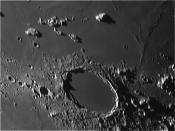1. A Puzzle about Definitions
Socrates has told us he knows how to reject faulty definitions. But how does he know when he has succeeded in finding the right definition? Meno raises an objection to the entire definitional search in the form of (what has been called) "Meno's Paradox," or "The Paradox of Inquiry" (Meno 80d-e).
2. An Objection to Inquiry
1. The argument reformulated:
1. If you know what you're looking for, inquiry is unnecessary.
2. If you don't know what you're looking for, inquiry is impossible.
3. Therefore, inquiry is either unnecessary or impossible.
2. An implicit premise:
Either you know what you're looking for or you don't know what you're looking for.
And this is a logical truth. Or is it? Only if "you know what you're looking for" is used unambiguously in both disjuncts.
3.
Evaluating the Argument
There seems to be an equivocation in "you know what you're looking for":
1. You know the question you wish to answer.
2. You know the answer to that question.
Using sense (A), (2) is true, but (1) is false; using sense (B), (1) is true, but (2) is false. But there is no one sense in which both premises are true. And from the pair of true premises, (1B) and (2A), nothing follows, because of the equivocation.
To see the ambiguity, consider the question: "Is it possible for you to know what you don't know?"
In one sense, the answer is "no." You can't both know and not know the same thing. (Pace Heraclitus.) In another sense, the answer is "yes." You can know the questions you don't have the answers to.
4.
How Inquiry is Possible
So this is how inquiry is possible. You know what question you want to answer (and to which you...



For better version read comment
The labelling of this essay's premises is confusing. For the original (?) go to
http://www.aarweb.org/syllabus/syllabi/c/cohe n/phil320/menopar.htm
Or type Meno's paradox into google (its your first hit)
0 out of 0 people found this comment useful.